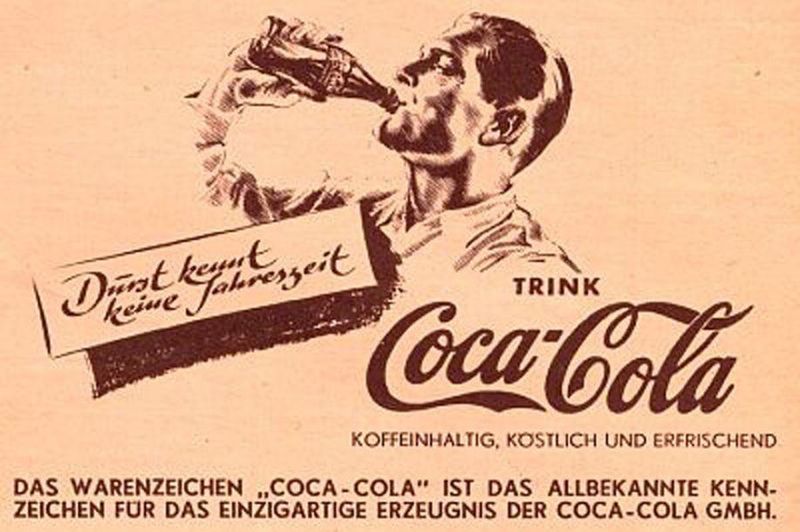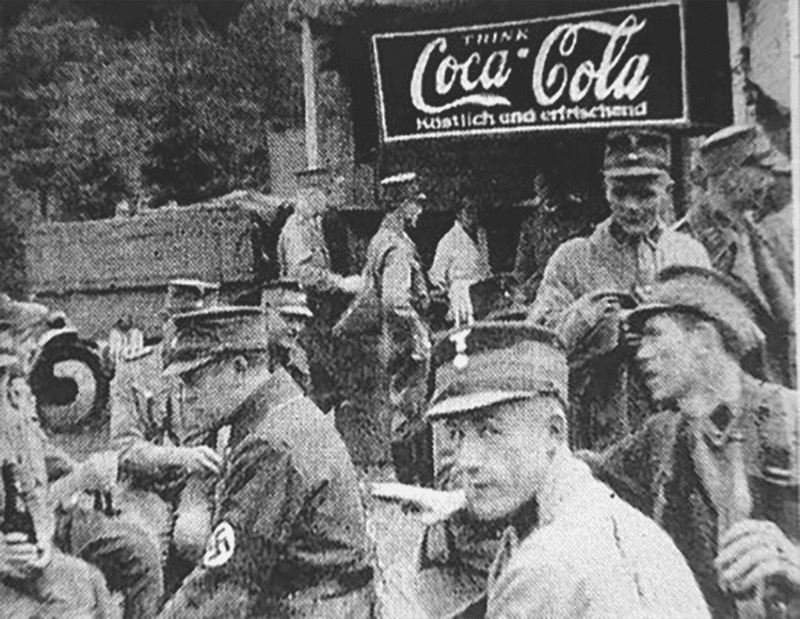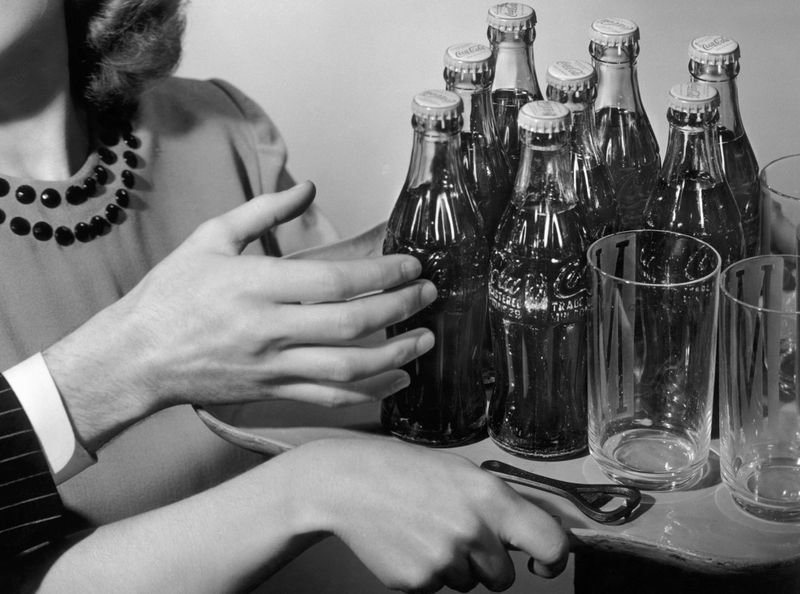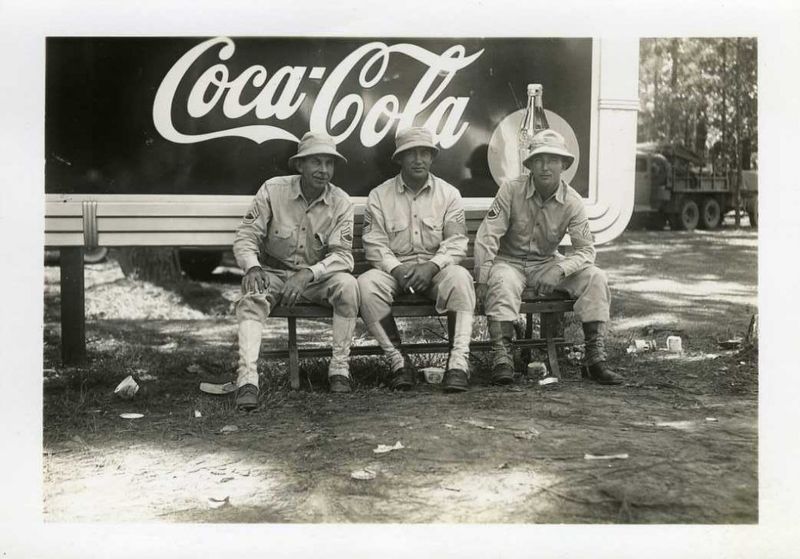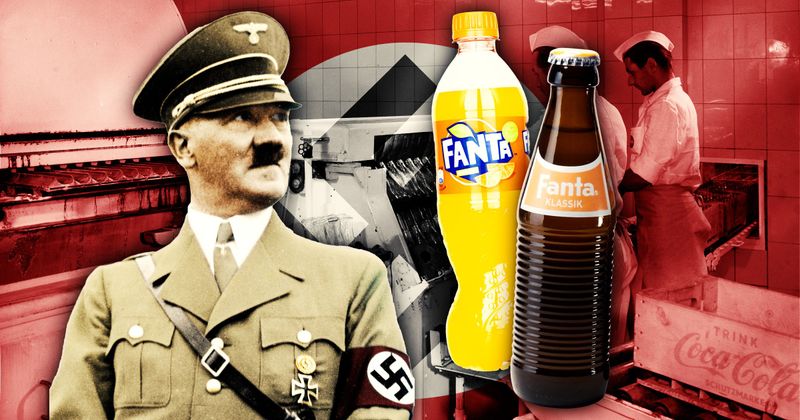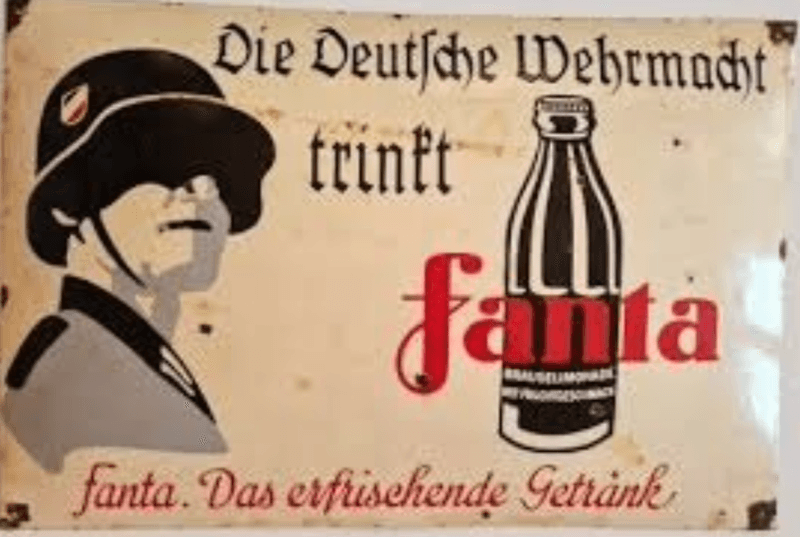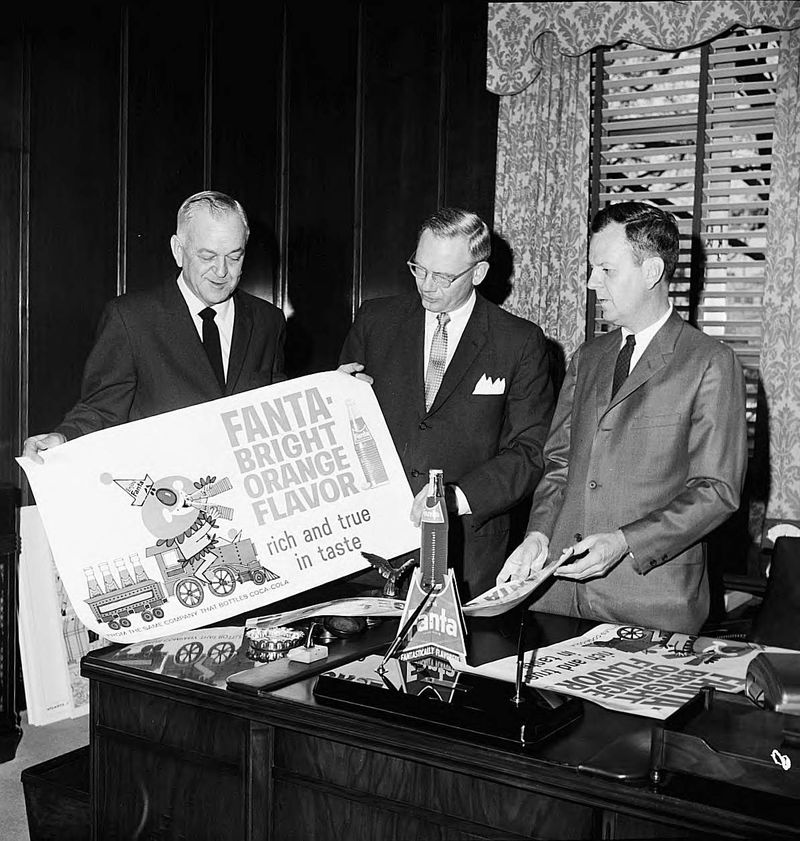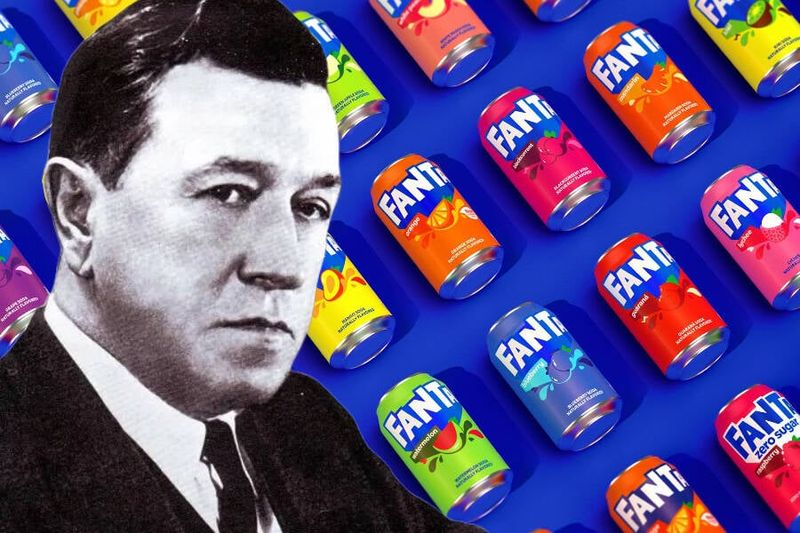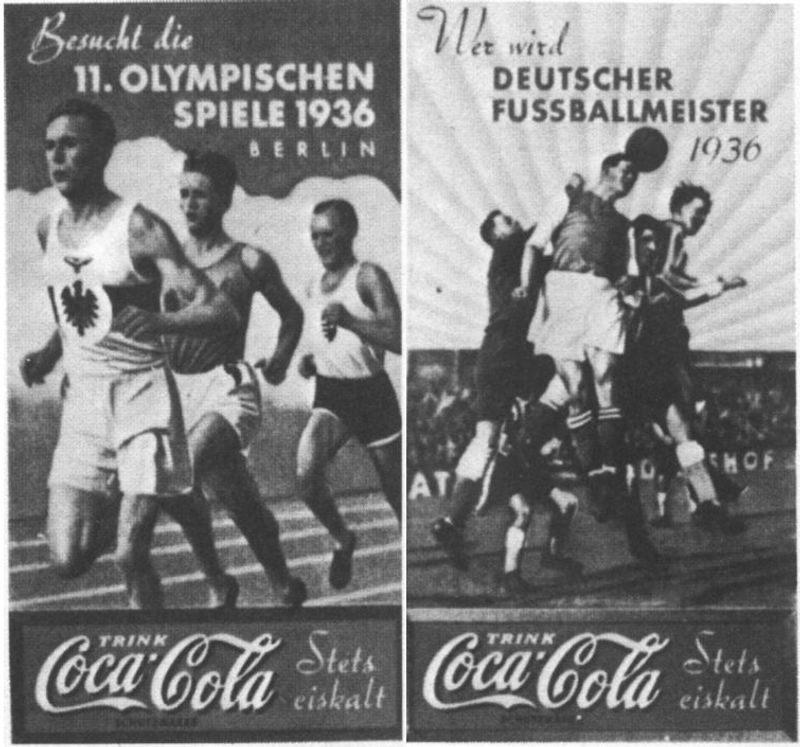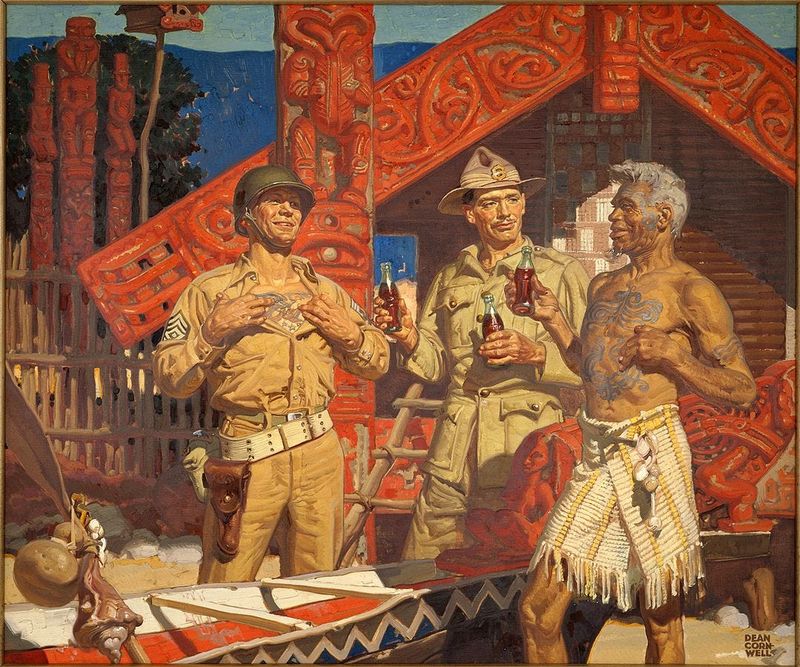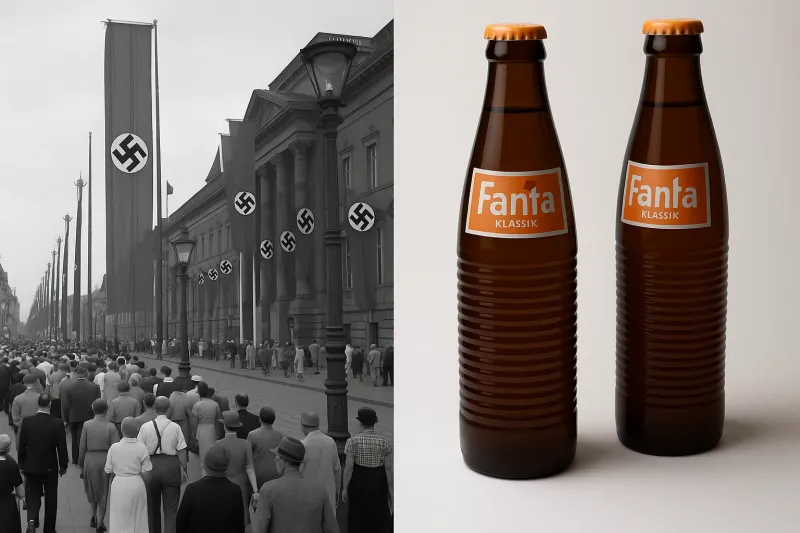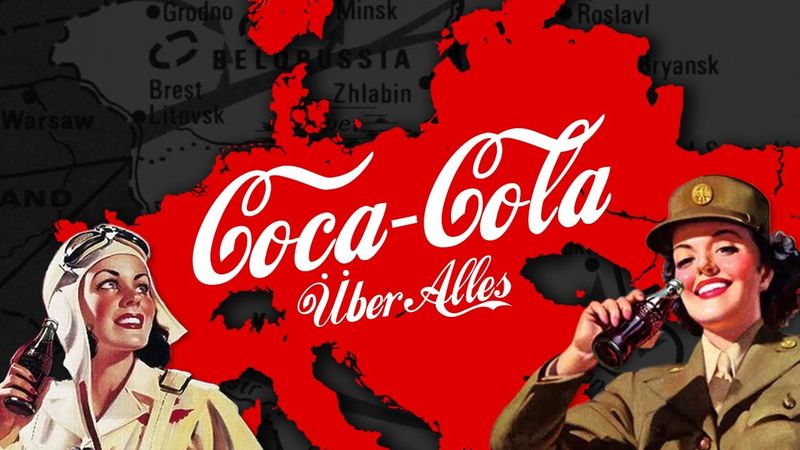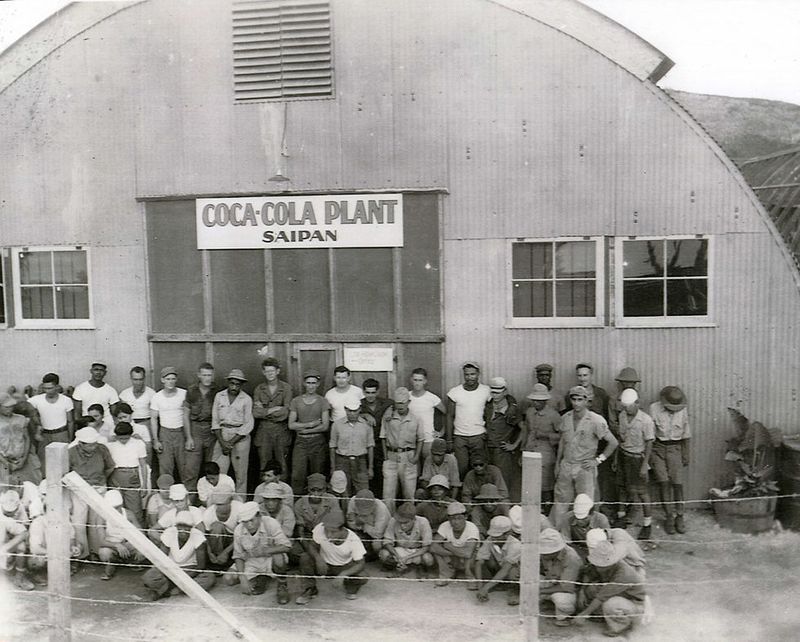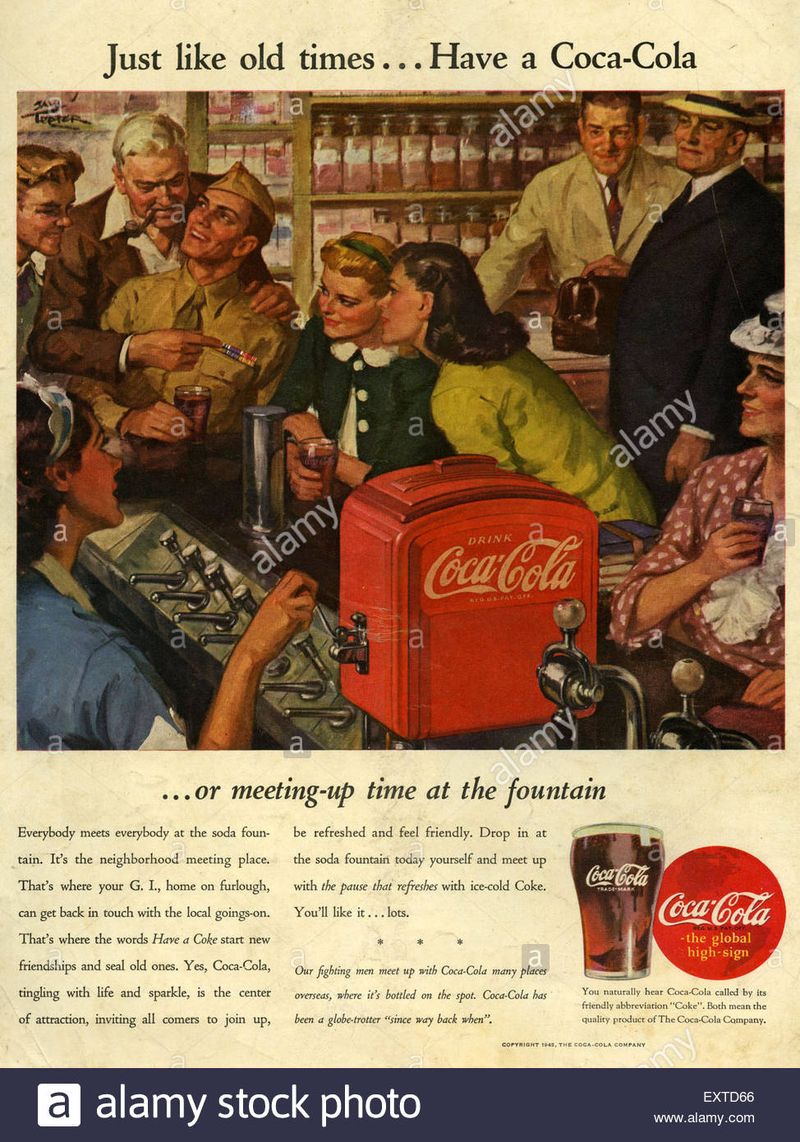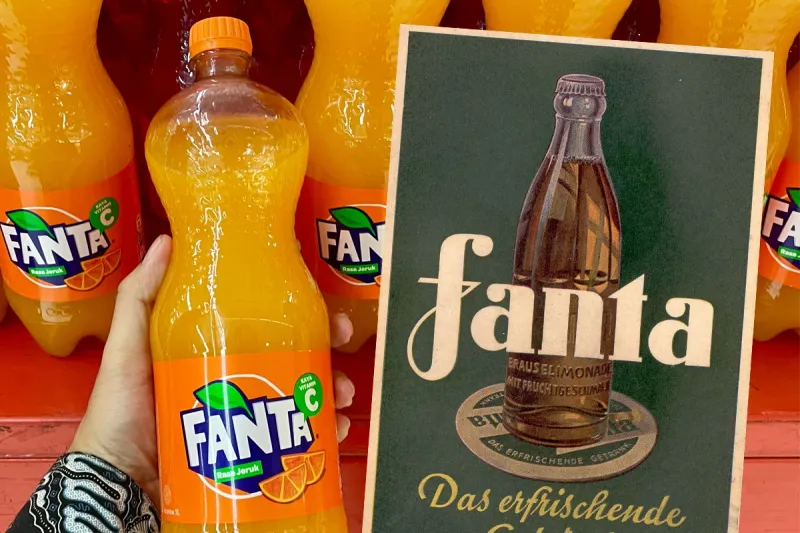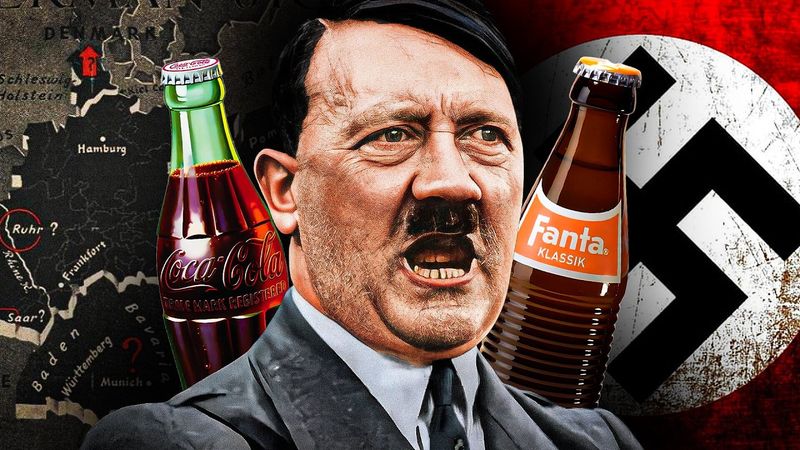From fizzy fountains in American diners to vending machines across the globe, Coca-Cola is one of the most iconic brands in history. But few know that behind the red-and-white label lies a bizarre chapter involving Nazi Germany, corporate survival, and a now-famous orange soda. Here are the eye-opening facts that reveal Coca-Cola’s unexpected ties to Hitler’s regime—and how it all led to the creation of Fanta.
1. Coca-Cola’s Popularity in Pre-War Germany
In the 1930s, Coca-Cola was more than just a drink; it was a cultural phenomenon in Germany. The beverage became a favorite among young Germans, including those in the Hitler Youth. Coca-Cola’s marketing strategies made it a staple in German households, with its iconic logo visible in various social settings. Its availability at local stores and events made it an integral part of German youth culture, embedding itself into the fabric of daily life. This mass appeal laid the groundwork for Coca-Cola’s significant presence in Germany during tumultuous times, cementing its place in the nation’s history.
2. Coca-Cola’s German Division Under Nazi Rule
When Hitler came to power in 1933, Coca-Cola’s German division, under Max Keith, adapted to the new regime. Keith ensured the company aligned with Nazi policies to protect its business interests. Coca-Cola’s operations continued smoothly as it navigated through the political upheaval, symbolizing corporate survival in a totalitarian state. The division’s ability to maintain its business amidst the Nazi regime’s demands showcases the challenges and ethical dilemmas faced by multinational corporations during wartime. This era marked a strategic, albeit controversial, chapter for Coca-Cola as it prioritized business continuity over moral stance.
3. Coca-Cola’s Nazi-Sponsored Advertising
Coca-Cola’s presence at Nazi-sponsored events was a calculated move to maintain its market position. The brand’s advertisements at trade fairs and exhibitions, where swastikas stood alongside its logo, highlighted its willingness to conform to Nazi standards. This strategic alignment with Nazi events allowed Coca-Cola to sustain its business operations in Germany, despite the regime’s controversial ideologies. The company’s decision to advertise in such a politically charged environment reflects its prioritization of corporate interests over ethical considerations, leading to a complex legacy that intertwines with Nazi Germany’s history.
4. U.S. Parent Company’s Stance During the Nazi Era
The U.S. headquarters of Coca-Cola adopted a stance of strategic indifference regarding its German division’s operations under the Nazi regime. While not publicly endorsing Nazi policies, the American executives granted significant autonomy to the German branch, allowing it to navigate its unique political landscape. This hands-off approach ensured that profits continued to flow, reflecting corporate pragmatism over political alignment. The U.S. headquarters’ decision to look the other way during this tumultuous period illustrates the complexities multinational corporations face when operating in politically charged environments, raising questions about corporate responsibility.
5. Impact of World War II on Coca-Cola’s Supply Chain
World War II disrupted Coca-Cola’s supply chain, severing the flow of essential ingredients needed for production in Germany. The war-induced trade restrictions made it impossible for the German division to manufacture Coca-Cola, presenting a significant challenge. This shortage of raw materials forced Coca-Cola’s German operations to seek innovative solutions to sustain its business. The supply chain disruption during wartime exemplifies how global conflicts can impact multinational corporations, pushing them to adapt and innovate in the face of adversity. It was a period of uncertainty that required ingenuity to navigate successfully.
6. Birth of Fanta During the Nazi Era
Amidst the scarcity of Coca-Cola ingredients during World War II, Max Keith introduced a new beverage, Fanta, using available resources like apple fiber, whey, and beet sugar. This innovation kept Coca-Cola’s German factories operational during the war. Fanta’s creation underlines the necessity-driven ingenuity that emerged from wartime constraints, turning a challenge into an opportunity. The drink not only ensured business continuity but also became a significant player in the German beverage market. Fanta’s origin is a testament to adaptive strategies in the face of adversity, marking a pivotal moment in Coca-Cola’s history.
7. Fanta as the Official Nazi Soft Drink
With Coca-Cola’s unavailability, Fanta quickly became the substitute soft drink in Nazi Germany. It was embraced by the German public and consumed widely during the war. The drink’s popularity highlights its role as a wartime staple, tailored specifically for the needs of Nazi Germany. Fanta’s acceptance and widespread consumption reflect how necessity can drive consumer habits, even under oppressive regimes. This association with the Nazi era adds a complex layer to Fanta’s legacy, as a product born out of political and economic necessity, yet grown into a beloved global brand.
8. Coca-Cola’s Silence on Its Nazi-Era History
For decades after World War II, Coca-Cola remained silent about its German division’s ties to the Nazi regime. Efforts to quickly reintegrate and rebrand its operations overshadowed any acknowledgment of its wartime history. This silence allowed the company to distance itself from a controversial past, avoiding public scrutiny. The decision to remain tight-lipped about its Nazi-era activities reflects a broader corporate strategy to protect its brand image and focus on future growth. It wasn’t until historians uncovered these ties that Coca-Cola’s complex wartime history came to light, prompting renewed interest and debate.
9. The Sanitized Fanta Origin Story
For many years, Coca-Cola’s marketing portrayed Fanta as a fun, whimsical European drink, omitting its origins during the Nazi era. This sanitized narrative helped Fanta gain popularity without the shadow of its creation story. The lack of acknowledgment of its controversial past allowed Coca-Cola to build Fanta’s brand image free from historical baggage. Only in recent decades has the truth of Fanta’s wartime origins begun to emerge, challenging the carefully crafted narrative. The sanitized storytelling reflects how corporations can shape public perception by selectively presenting their history, influencing consumer attitudes and brand loyalty.
10. Fanta’s Post-War Global Success
After the war, Fanta transitioned from a wartime necessity to a global sensation. Its vibrant flavors and colorful branding appealed to a wide audience, leading to its expansion into new markets. Fanta’s success story is a testament to Coca-Cola’s ability to transform a product with a controversial past into a beloved brand worldwide. The drink’s journey from Nazi Germany to international fame underscores the power of marketing and brand evolution. Today, Fanta is sold in over 190 countries, but its wartime origins remain a lesser-known chapter in its history, overshadowed by its global appeal.
11. Max Keith’s Nazi Connections
Although not a Nazi party member, Max Keith, the head of Coca-Cola’s German operations, navigated the regime’s demands to protect the brand and its employees. His collaboration with Nazi officials ensured the company’s survival during the war. Keith’s strategic decisions highlight the ethical complexities faced by business leaders in authoritarian regimes. His ability to maintain Coca-Cola’s presence in Germany during this period earned him praise post-war, but also scrutiny for his wartime actions. Keith’s story serves as a cautionary tale of corporate leadership under oppressive governments, blending survival instincts with moral ambiguity.
12. Coca-Cola’s Ethical Quandaries During the Nazi Era
Coca-Cola’s operations in Nazi Germany present a case study in ethical compromise for corporate survival. The company prioritized business continuity over denouncing Nazi ideologies, opting to benefit from its association with the regime. This decision underscores the moral dilemmas faced by corporations in politically charged environments. Balancing profit motives with ethical responsibilities, Coca-Cola’s actions during this era continue to evoke debate and analysis. The company’s pragmatic approach highlights the complexities of maintaining business interests amidst controversial regimes, serving as a reference point for discussions on corporate ethics and responsibility in challenging political landscapes.
13. Post-War Praise for Max Keith
After the war, Coca-Cola’s American executives hailed Max Keith as a hero for preserving the company’s assets in Germany. His ability to keep operations running, despite the challenging political climate, earned him accolades. This post-war recognition reflects the complexities of corporate leadership during tumultuous times and the fine line between survival and collaboration. Keith’s actions, while controversial, were viewed as necessary by Coca-Cola’s U.S. headquarters to ensure the brand’s future success. This acknowledgment underscores the difficult choices faced by business leaders in crisis, as well as the lasting impact of those decisions on corporate legacy.
14. The Uninterrupted Fanta Production During WWII
Unlike many companies that ceased operations during WWII, Coca-Cola’s German bottling plants continued to produce Fanta throughout the war. The uninterrupted production ensured that the company maintained its market presence, demonstrating resilience in the face of adversity. This continuity highlights Coca-Cola’s commitment to sustaining its business operations, even amid global conflict. The ability to keep the factories running serves as a testament to the ingenuity and determination of its leadership. Fanta’s production during this challenging period contributed to its post-war success, laying the foundation for its growth as a global brand in the years that followed.
15. Investigations into Coca-Cola’s Nazi Connections
Over the years, journalists and historians have delved into Coca-Cola’s Nazi-era history, uncovering its controversial ties to the regime. These investigations led to documentaries and publications that explored corporate complicity during WWII. Coca-Cola’s involvement sparked debates and discussions about the ethical responsibilities of multinational corporations in wartime. The revelations brought attention to the complexities of conducting business under authoritarian regimes and prompted reevaluations of corporate history. The investigations serve as a reminder of the lasting impact of historical actions and the importance of transparency and accountability in corporate practices.
16. Employment Protection for Coca-Cola Workers
Accounts suggest that Max Keith took measures to protect Coca-Cola workers from being conscripted into the German army, keeping them employed in factories instead. This move, whether motivated by practicality or morality, safeguarded the livelihoods of many during a time of uncertainty. The decision to shield employees from conscription highlights the nuanced role business leaders play in balancing corporate interests with employee welfare. It reflects a strategic approach to maintaining productivity and workforce stability. This aspect of Coca-Cola’s wartime history illustrates the challenges of leadership in crisis and the multifaceted nature of ethical decision-making.
17. Coca-Cola’s Rapid Rebranding Post-War
By 1949, Coca-Cola’s German division had fully rebranded, emphasizing American values and freedom. The swift transition from a Nazi-associated brand to a symbol of democracy and freedom marked a significant shift in its marketing strategy. This rebranding underscores the power of corporate image transformation and the ability to distance a brand from its controversial past. Coca-Cola’s post-war repositioning highlights its resilience and adaptability, turning a challenging chapter into an opportunity for growth. The company’s ability to reinvent its image showcases the dynamic nature of branding and the influence of cultural and political contexts on corporate identity.
18. Coca-Cola’s Acknowledgment of Fanta’s Origins
In 2015, Coca-Cola Germany launched a campaign acknowledging Fanta’s origins during WWII, albeit with a light-hearted approach. The campaign marked a rare moment of transparency, as the company addressed a controversial chapter in its history. By acknowledging Fanta’s past, Coca-Cola aimed to reshape the narrative and embrace its complex legacy. This acknowledgment reflects a broader trend of historical transparency and accountability in corporate storytelling. The campaign’s reception highlighted the ongoing interest in corporate history and the importance of honesty in brand communication. It served as a step towards reconciling with the past while looking to the future.
19. Survival Lessons from the Nazi Era
The Nazi era taught Coca-Cola valuable lessons in corporate survival amidst political upheaval. The company’s ability to adapt under a fascist regime became part of its global resilience strategy. These lessons informed its approach to navigating future challenges and underscored the importance of flexibility and strategic thinking. Coca-Cola’s experience during this period highlights the complexities of conducting business in morally complex environments and the necessity of balancing profit motives with ethical considerations. The legacy of this era continues to influence Coca-Cola’s corporate philosophy, serving as a cautionary tale of the delicate balance between survival and principle.

